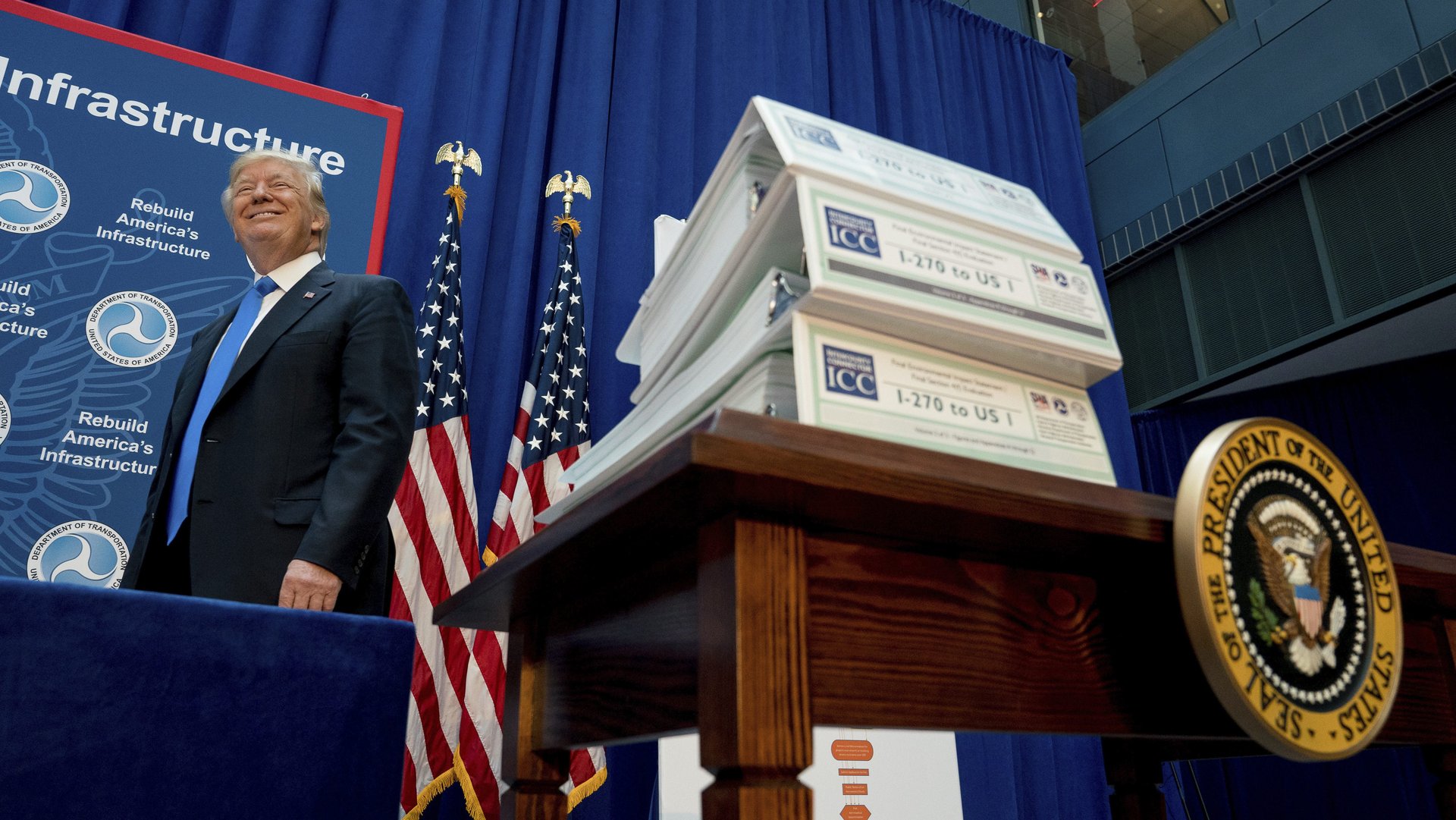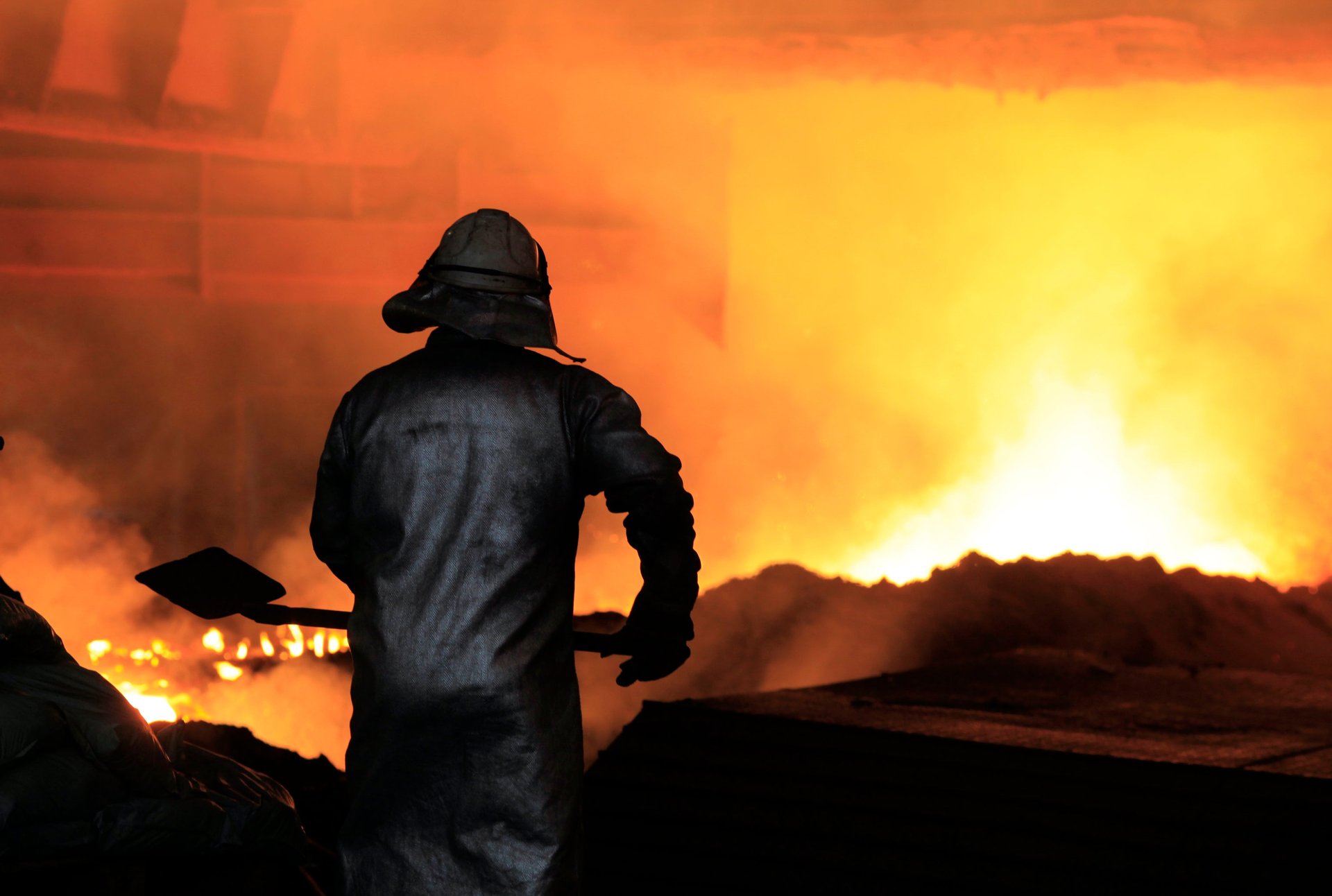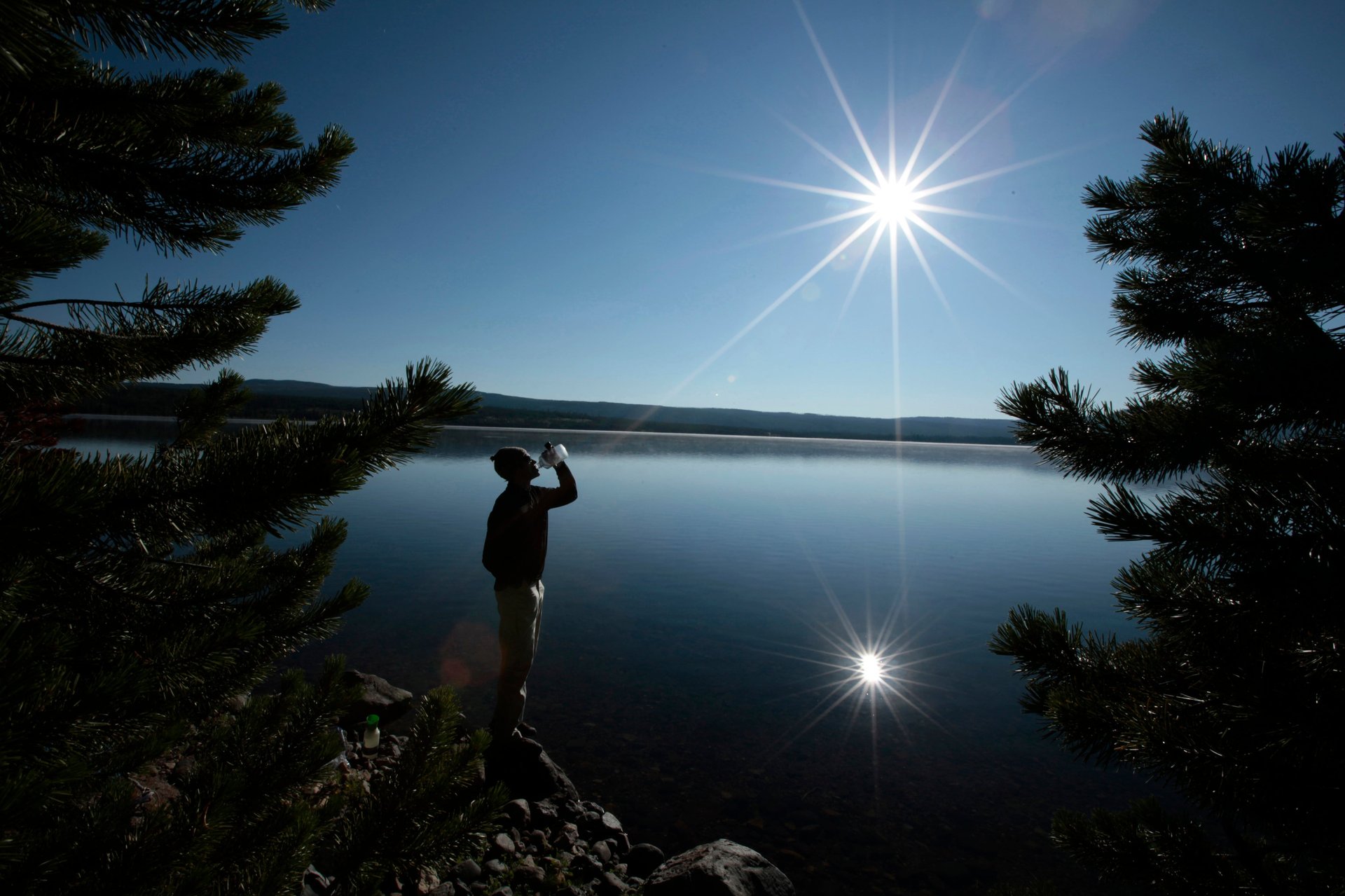Trump is dismantling rules and laws protecting millions of Americans. Here are the most important.
Between the White House’s revolving-door staffing, president Donald Trump’s pugilistic approach to foreign and domestic policy, and Congress’s gridlock over almost everything, you might assume there’s not a whole lot being accomplished in Washington DC.


Between the White House’s revolving-door staffing, president Donald Trump’s pugilistic approach to foreign and domestic policy, and Congress’s gridlock over almost everything, you might assume there’s not a whole lot being accomplished in Washington DC.
But in reality, the Trump administration is changing many of the nitty-gritty but vital things the federal government does that affect the quality of life of anyone living or working in the United States. As became clear during Trump’s first 100 days, the administration is systematically dismantling consumer, labor, and environmental protections, as well as de-funding studies that might make the case for new rules. In July it said that it plans to suspend, discontinue, or change 860 rules and regulations, many of which were proposed at the tail-end of Barack Obama’s presidency.
A new onslaught may be on the way. Yesterday (Sept. 21), Trump appointed a new head of the Consumer Product Safety Commission (CPSC): Dana Baiocco, a lawyer who built her career on defending companies against lawsuits on asbestos deaths and airline crashes. The commission’s former head, Eliot Kaye, had refused to follow an early White House order to eliminate two regulations for every new one passed, because it “would be counter to our safety mission.” If Trump’s past appointees are an indicator, Baiocco, who starts her new job on Oct. 27, is less likely to have such qualms.
Presidents often radically change their predecessors’ policies early on—in his first 100 days, Obama loosened rules on marijuana arrests, allowed states to set their own emissions standards, and cancelled leases for drilling near national parks, among other things.
But the Trump administration is eliminating rules that federal agencies have shown help people and that companies have already spent money complying with, says Celine McNicholas, labor counsel at the Economic Policy Institute, a non-partisan think tank that represents low- and middle-income workers. “There has always been push-back” from any industry the government was trying to regulate, she said, but under the Trump administration, regulations themselves have “become a political weapon,”
Many benefits may eventually accrue to corporations—and therefore to the wealthy people who run or own them (though some companies worry the rush of deregulation will cost them more than it saves). For now, employees, customers, and US homeowners are shouldering the burdens, which include greater health risks, lower wages, and fewer ways to recoup their lives’ savings if they are ripped off. This month’s massive Equifax hack, in which the personal data of 143 million US consumers were stolen, is a sign that the US needs stronger, not weaker regulation, Democrats say.
As the changes pile up, we’re keeping track of what’s been rolled back and what seems in danger of being weakened or eliminated. Here are the most important changes so far.

Worker protections
The administration is cutting rules designed to make manual labor safer, while undercutting those aimed at increasing wages and benefits for the less wealthy. The Economic Policy Institute is closely tracking the impact of these changes.
Fair wages
Made it easier to pay women and minorities less. The White House froze the “EEO-1 pay data collection rule” in August, which required businesses with more than 100 employees to report pay data by gender and race. In May it proposed merging two decades-old agencies that exist to prevent employment discrimination, but businesses have resisted.
Said 4.2 million workers don’t deserve overtime pay. Employees who work more than 40 hours a week must be paid “time and a half,” or 150% of their hourly wage, if they make less than a certain annual salary in many jobs. In 2016 the Obama administration raised the salary threshold from $23,000 to $47,476, but a court ruled that it had overreached. This month Trump’s Department of Justice said it wouldn’t fight (pdf) the ruling. That effectively kills the 2016 change and means an estimated 4.2 million who earn between the two levels won’t be guaranteed extra pay if they work overtime.
Stopped helping states set up retirement accounts for workers. In April, the president blocked a rule that encouraged local municipalities to create retirement accounts for lower-wage private workers. Some 55 million US workers in private salaried jobs don’t have retirement accounts.
Health and safety
Exposed workers to cancer-causing agents. The Department of Labor (DOL) in June delayed enforcement of a rule that limits workers’ exposure to beryllium, which causes lung cancer and other respiratory diseases. In April the department delayed another rule that would lower the acceptable levels of crystalline silica in the construction industry, which employs nearly 7 million. Crystalline silica causes lung cancer and other lung diseases if breathed in in high levels.
Weakened reporting of workplace accidents. Also in June, the DOL suspended a rule requiring companies with more than 10 employees—which account for over 60% of the country’s paid employees—from electronically reporting injuries on the job, data that would have been reported publicly on government websites.
Allowed unsafe companies to get government contracts. The Fair and Safe Workplaces rule, which required companies to disclose and correct serious violations of labor and safety laws in order to get big federal government contracts, was repealed in March.

Consumer protections
Since Trump issued the order to abolish two regulations for every new one, the CPSC has continued to write new regulations against unsafe products. Other consumer protections, though, have already been whittled away.
Allowed financial advisers to ignore clients’ best interests. The Labor Department said in August it would delay enforcement of the “best-interest” section of a fiduciary rule for 18 months. The section in question requires financial advisors to recommend the products that are best for clients, not those that earn the advisors the most money.
Would weaken rules protecting senior citizens from abuse. In June, the Trump administration proposed ending an Obama-era rule that made it easier for nursing-home residents (or their families) to sue for abuse, and replacing it with one that would force them into arbitration. That would mean there would be no public records of abuse at any the homes that house over 1.5 million Americans. The American Association of Retired Persons has been fighting this change, says David Certner, its legal counsel. “There will likely be court challenges…as well,” he said.
Made guns available to the mentally ill: One of Trump’s first regulatory rollbacks was eliminating a rule that blocked gun sales to people too mentally ill to manage their own financial affairs.

Environmental Protections
Rules protecting the environment have been a particular target of Trump’s, from those aimed at preventing whales and sea turtles from being entangled in fishing nets to one banning a pesticide that can stunt children’s brains. (National Geographic has a comprehensive running list of these.) A few in particular are expected to have a big impact.
Polluting drinking water. The landmark 1972 Clean Water Act was amended in 2015 to clarify which wetlands, intermittent steams, and isolated small waterways are protected. The Trump administration proposes eliminating these 2015 clarifications, which could allow more pollutants into water that 117 million Americans eventually drink. After that, the Environmental Protection Agency has said, it will undertake a broader review of which waters the federal government should monitor.
Polluting the air. In March, Trump repealed Obama’s “Clean Power Plan,” which required states to slash carbon emissions from power plants. (He did this after naming coal industry-backed lawyers and talking heads to his cabinet.) The plan was crafted to prevent climate change, but it would also have prevented thousands of premature deaths due to air pollution, the EPA calculated, and prevented 90,000 asthma attacks a year.
Heating the planet. In June, Trump said he would pull the US out of the Paris Climate Agreement aimed at curbing global warming. While the change can’t go into effect until a day after the next presidential election, and the US will continue to fund the UN body that oversees it, America’s decision to leave triggered fears that other countries might follow suit. So far, though, the major economies have only reaffirmed the deal.